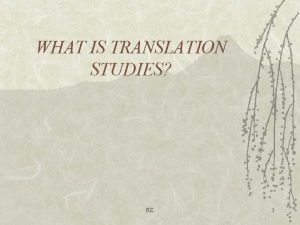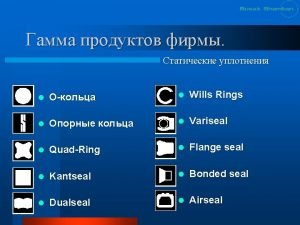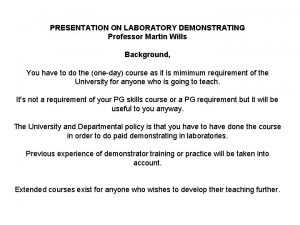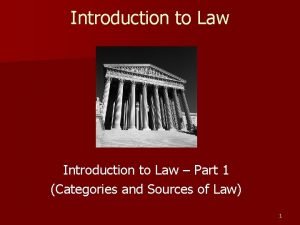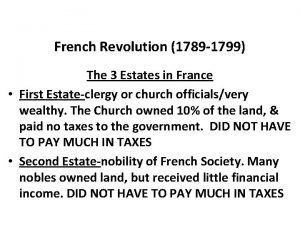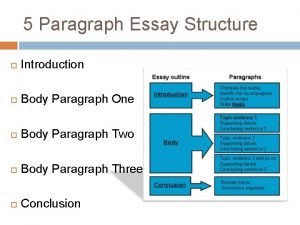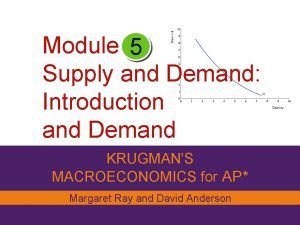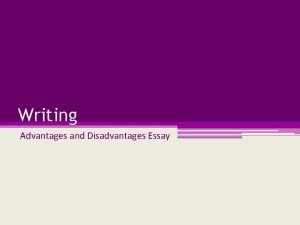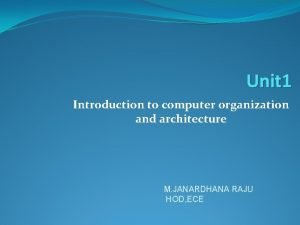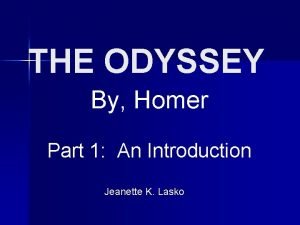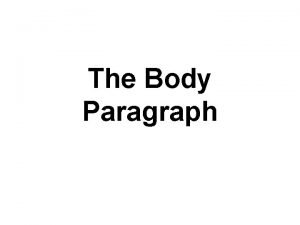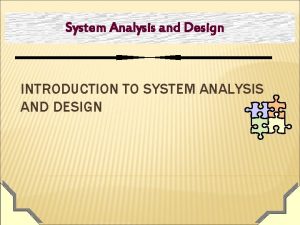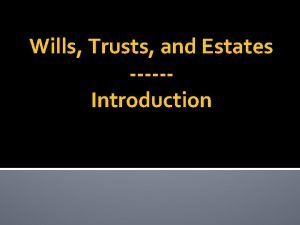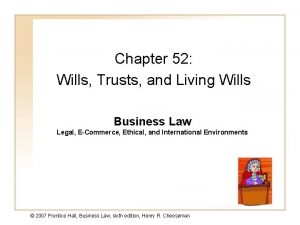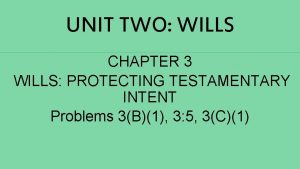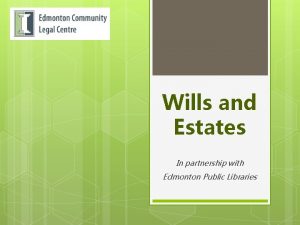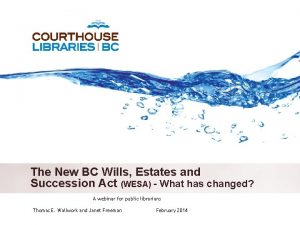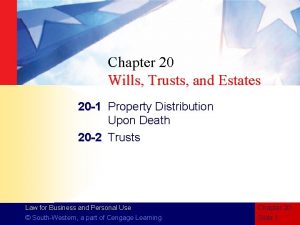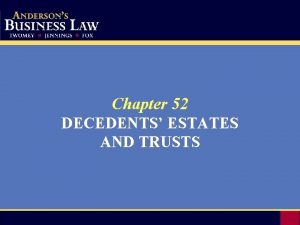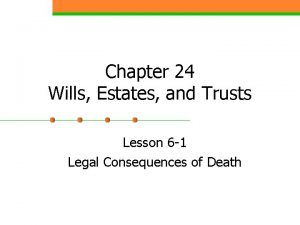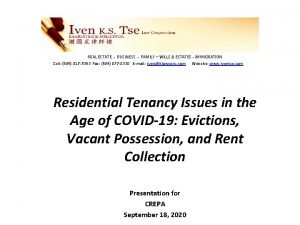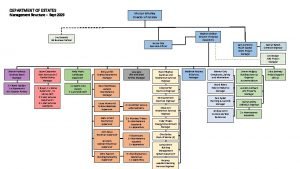WILLS AND ESTATES INTRODUCTION TO WILLS AND ESTATES












































- Slides: 44

WILLS AND ESTATES INTRODUCTION TO WILLS AND ESTATES LAW IN ALBERTA November 24, 2019 Leticia Siu & Jessica Kwok

INTRODUCTION What this presentation will cover: information about making a will common questions about wills information about administering an estate information about estate documents This presentation is intended to provide general information about Alberta law related to wills and estates and not to provide legal advice. You may need to consult a lawyer to obtain advice about your specific situation.

Background Canada has common law legal system which comes from England in this system “law” includes legislation and “precedent” (caselaw or judge-made law) there is different kind of legal system which is used in many other countries including China and Taiwan – it is civil law legal system one of features of that system is an emphasis on a “code” or statutes (legislation) over judge-made law

Basic Terms Last Will and Testament – formal statement of person’s wishes in regard to what happens to his property after his death Estate – all of the property that a person owns at the time of his death Testator – person who writes a will Beneficiary – person who receives a gift or inheritance under a will

Personal Representative – also known as an “executor” – person who is appointed to deal with an estate, ie. paying out debts, making sure those named in will receive their inheritance, etc. Grant of Probate – court order that allows an executor to administer an estate when there is a will Grant of Administration – court order that allows an executor to administer an estate when there is no will

Personal Directive – document that appoints someone to be an “agent” to make personal, non-financial decisions on his behalf if he loses the ability to make the decisions on his own Enduring Power of Attorney – document that appoints someone to be an “attorney” to make financial decisions on his behalf if he loses the ability to make the decisions on his own

1. MAKING A WILL “will” is statement of person’s wishes in regard to what happens to his property after his death Wills and Succession Act is law in regard to wills in Alberta a will has to meet certain requirements in order to be considered “valid” in Alberta three kinds of wills are recognized: 1. formal will 2. holograph will 3. military will

in this presentation will go over some requirements formal will – most common kind of will and what is prepared by lawyer in order for a formal will to be “valid” it must be in writing it must be signed in front of 2 witnesses same witnesses must sign in presence of will-maker there are rules about who can witness, ie. cannot be beneficiary other legal requirements include testator must have capacity (mental ability) to make will testator must make sufficient provision for dependents

Contents of a formal will What to include in a will appoint a personal representative (executor) to administer the estate appoint a guardian for minor children set out directions about how to distribute the estate (who are the beneficiaries and what do they get) give the personal representative the ability to deal with the estate

Capacity in order to make will, person must have “capacity” (mental ability) to do so law considers a person to have capacity if he: knows and understand that he is making a will knows what property is in his estate knows who would be expected to benefit from his estate if a person does not have capacity when he signs will, the will can later be challenged

a will takes effect on person’s death a will can be changed as long as person has mental ability to do so a will can be changed through signing a “codicil” (prerequisite signing requirements) a will can be revoked through signing a new will that revokes a previous will

Importance of making a will sets out clear instructions about how your property will be distributed a will also ensures that family members and dependents are provided for after death recommend hiring lawyer to make a will to ensure proper drafting of the will to ensure what should be in a will is included a will is a legal document and there are laws, legal principles, and other considerations that apply to making a will and also dealing with an estate

Questions re: making a will 1. Do I need a will? it is not legal requirement to have a will is to provide clear instructions as to how to distribute your estate and to make sure that your family and dependants are provided for recommend making a will if: you have dependants, ie. spouse, dependent children, elderly parents, etc. you have minor children so that you can appoint someone to be their guardian

you have a blended family, ie. second marriage, former spouse, stepchildren, etc. you have a large or complicated estate you have a small estate 2. What happens if I die without a will? if you die without a will, then your property will be distributed according to legislation Wills and Succession Act sets out order of who takes and their portion someone would need to make an application to be appointed as the Personal Representative

3. Can a will be challenged? will can be challenged in certain situations, ie. it does not meet the prerequisite formal requirements, ie. not signed properly a person did not have the mental ability to make a will the wording is not clear as to how the estate should be distributed inadequate in the will provision for a dependant, ie. handicapped child,

4. Do I need to update a will? a will should be reviewed every few years or if there is a important change in their circumstances, ie. marriage or divorce, birth of a child, etc. to see if it needs to be updated if a person has a will and moves to another province in Canada, then it is important to have a lawyer in the new province review the will to make sure it is valid according to the laws of that province if a person has a will and moves to Canada from another country, it is very important to have a lawyer in Canada review the will; in many cases, a new will should be made

2. ESTATE LAW Estate Administration Act is legislation that governs estates in Alberta when person dies if there is a will: property person is distributed according to the will named in will applies to the court to be appointed as Personal Representative and to obtain Grant of Probate – this document allows him/her to handle the estate

if there is no will: property is distributed according to the Wills and Succession Act someone must apply to the court to be appointed as the Personal Representative and to obtain Grant of Administration – this document allows him/her to handle the estate

Personal Representative’s role Personal Representative has temporary control of an estate his responsibilities include: must make funeral arrangements must locate person’s assets must protect assets make a court application for court grant pay the debts in the estate distribute the property in the estate

Personal Representative must make decisions in regard to the estate and is responsible to account to beneficiaries Personal Representative can have personal legal liability if are not careful in how he/she handles the estate, ie. if he/she distributes estate before all debts and taxes have been paid in choosing Personal Representative the maker of a will should consider the person’s location his or her responsibility and ability to manage property his or her relationship to the beneficiaries

Personal Representative’s role it is important to appoint trustworthy as Personal Representative it is a good idea to appoint an alternate in case your first choice cannot act Personal Representative is responsible for administering an estate on a basic level this means collecting the estate assets, paying debts, and distributing estate it also means confirming if there is or is not a will, who the beneficiaries are, and estate assets and debts

if there is a will, then the Personal Representative must follow it in administering the estate, subject to law if there is no will, then someone must apply to the court to be appointed as the Personal Representative in order to have the authority to deal with the estate if there is no will, the estate is distributed based on legislation

depending on the estate finances, complexity, number of beneficiaries, it can take one year or more to complete administration of estate the Personal Representative must take steps to protect estate assets, ie. making sure there is house insurance they must debts, notify banks that a person has passed away, file income taxes, etc. they need to check for and make arrangements for RRSPs, life insurance, etc.

relationship to beneficiaries Personal Representative is accountable to beneficiaries for how they handle the estate if there are concerns about how an estate is being administered, beneficiary can apply to court to require an executor to account for how funds are used

role of court Personal Representative must apply to court to obtain order for grant of probate depending on the estate and court processing time, this process can take several months or more the order confirms the will is valid, the Personal Representative has the authority to act, and the specific details of the estate because of the paperwork involved and the legal liability of a Personal Representative, usually the Personal Representative hires a lawyer to assist with the application if a will is challenged, for example, a person left out of a will, then there is also court involvement

compensation it can be a lot of work to administer an estate and legally, a Personal Representative is entitled to compensation if Personal Representative is also named as a beneficiary, some people indicate in their will that the Personal Representative will not receive compensation

3. ESTATE DOCUMENTS Personal Directive – document that appoints someone to be an “agent” to make personal, non-financial decisions on person’s behalf if that person loses the ability to make the decisions on his or her own Enduring Power of Attorney – document that appoints someone to be an “attorney” to make financial decisions on person’s behalf if that person loses the ability to make the decisions on his or her own

when someone goes to a lawyer to prepare a Will, 2 other documents are sometimes prepared as well: Personal Directive (“PD”) Enduring Power of Attorney (“EPA”) these two documents are referred to as “estate documents” these are also sometimes called “advance planning documents”

in Personal Directive and Enduring Power of Attorney you appoint someone in advance to make decisions for you for when you can no longer do so unlike a will these documents are made to be used during person’s lifetime these documents plan for disability and are no longer effective when the maker dies

-there are certain legal requirements in order for a personal directive to be valid; these are found in the Personal Directives Act - there are certain legal requirements in order for a power of attorney to be valid; these are found in the Powers of Attorney Act

both documents need to be signed when the maker has the mental ability to understand the documents the lawyer who prepares the documents makes a judgment about if a person has the mental ability to understand sign the documents Personal Directive and Power of Attorney are typically prepared to become effective at some time in the future, ie. when the maker loses capacity and a medical professional, ie. doctor, confirms this in writing

some decisions agent might need to make include: living arrangements on behalf of someone, ie. nursing home, assisted living facility, apartment, etc. making decisions about social activities arranging making for health care treatment health care decisions obtaining and providing information to and from government agencies and service providers

some decisions or responsibilities of attorney include: paying bills, filing income tax returns managing buying investments or selling property obtaining and providing financial information to and from government agencies and service providers

Sample situations examples of when a Personal Directive may be required: someone needs to be placed in a nursing home because of age or a medical condition – an agent is needed to make decisions and provide instructions on a person’s care someone has been hospitalized – an agent is required to make health care decisions on a person’s behalf

examples of when an Enduring Power of Attorney may be required someone is placed in a nursing home and can no longer deal with their finances – an attorney is required to pay their bills, file tax returns, etc. someone is in different country and needs someone to deal with financial affairs, ie. manage or sell property, etc.

if no personal directive or power of attorney, person who is helping to care for someone may run into obstacles when dealing with third parties because there is no evidence that the person has the legal authority to act for someone if an individual has to make decisions on someone else’s behalf and these documents are not in place and are required, someone will need to make a court application to appoint an individual as an agent or attorney in that case court will decide who the agent or attorney will be person who is appointed may not be the same person that you would have chosen

in situation where court application for appointment is required, it causes additional stress to family and friends in already stressful circumstances, ie. you might have illness or poor health, need to be placed in nursing home, etc. court application takes time and is much more expensive than the cost of having simple documents prepared and signed in advance

CONCLUSION it is important to have a will it is important to have estate documents prepared ahead of time it is inexpensive compared to the issues or complications that could arise without a will and estate documents

RESOURCES 1. Centre for Public Legal Education Alberta this organization provides legal information to the public on a variety of legal topics there are publications on their website www. cplea. ca

2. Edmonton Community Legal Centre (“ECLC”) Telus House, South Tower Second floor 10020 – 100 Street provides free legal clinics and seminars in many areas of law including wills and estates provides referral to lawyers who can prepare wills at reduced rate for low-income individuals www. eclc. ca (780) 702 -1725

QUESTIONS? Is it necessary to make Personal Directive and Enduring Power of Attorney? The documents are planning tool and provides peace of mind. There is potential liability in not having these documents, and likely in the future having these documents in place will become more important, as laws change, and government and health care institutions require more documentation.

What is the difference between Power of Attorney and Enduring Power of Attorney? Purpose behind documents and beginning and end dates are different: In Power of Attorney, attorney is standing in maker’s shoes and has the authority to do things outlined in the Power of Attorney, subject to law. The attorney’s authority ends when the maker is no longer capable of making decisions. In Enduring Power of Attorney, maker appoints someone in advance to make decisions when he or she is not able to do so, usually starts when the maker is no longer capable of making decisions and ends when the maker or attorney dies.

A prudent man sees danger and takes refuge, but the simple keep going and suffer for it. Proverbs 22: 3 If any of you lacks wisdom, he should ask God, who gives generously without finding fault, and it will be given to him. James 1: 5 A good man leaves an inheritance for his children’s children, but a sinner’s wealth is stored up for the righteous. Proverbs 13: 23

THE END Thank you for attending our presentation.
 Wills moms name in stranger things
Wills moms name in stranger things Senior will
Senior will Willes little flower school chairman
Willes little flower school chairman Martin wills warwick
Martin wills warwick Wolfram wills
Wolfram wills Julie wills murder
Julie wills murder Wills rings
Wills rings Mike santer
Mike santer Luke ravenscroft
Luke ravenscroft Theresa wills templates
Theresa wills templates Martin wills
Martin wills Industrial estate examples
Industrial estate examples Definition of industrial estate
Definition of industrial estate 3 estates cartoon
3 estates cartoon Great estates club
Great estates club Three estates
Three estates Jenna estates hoa
Jenna estates hoa Civil vs common law
Civil vs common law Perpetuity period non charitable purpose trusts
Perpetuity period non charitable purpose trusts Trellis ridge estates
Trellis ridge estates The awakening of the third estate
The awakening of the third estate The three estates of french revolution
The three estates of french revolution Old regime 3 estates
Old regime 3 estates One important result of the estates-general was
One important result of the estates-general was Waste services lindsay
Waste services lindsay Three estates of french revolution
Three estates of french revolution Where is millionaire estates on life game
Where is millionaire estates on life game Trinchero family estates
Trinchero family estates Borgiouse
Borgiouse Freehold estates include
Freehold estates include Estates general
Estates general Convocation of the estates general
Convocation of the estates general Who made up the three estates
Who made up the three estates Essay structure introduction
Essay structure introduction Module 5 supply and demand introduction and demand
Module 5 supply and demand introduction and demand Benvolio quotes act 1, scene 1
Benvolio quotes act 1, scene 1 Advantages and disadvantages essay introduction
Advantages and disadvantages essay introduction Acids and bases webquest
Acids and bases webquest The odyssey and epic poetry an introduction part 1
The odyssey and epic poetry an introduction part 1 Introduction to computer organization and architecture
Introduction to computer organization and architecture Romeo and juliet a tragic love story
Romeo and juliet a tragic love story The odyssey and epic poetry an introduction part 1
The odyssey and epic poetry an introduction part 1 1 body paragraph
1 body paragraph Sad system analysis and design
Sad system analysis and design Nas vs san
Nas vs san




